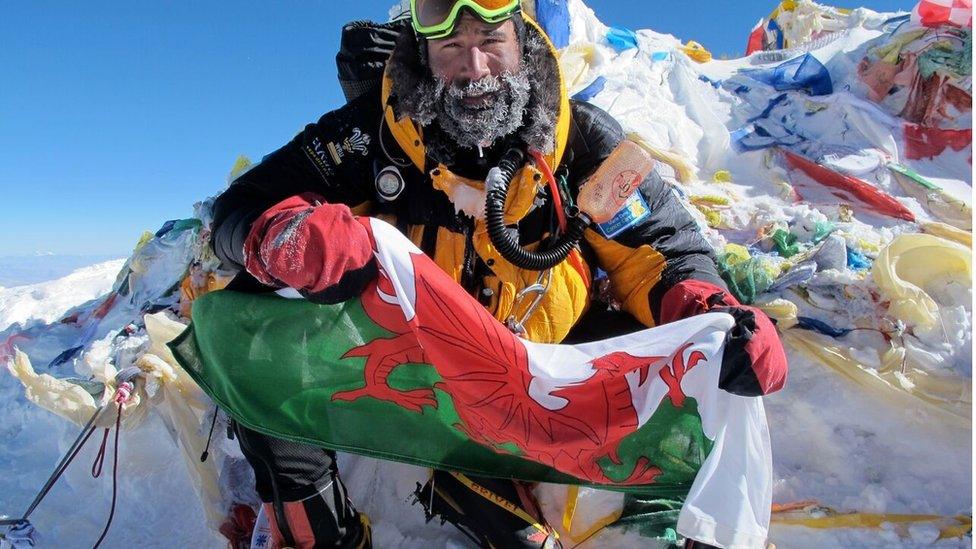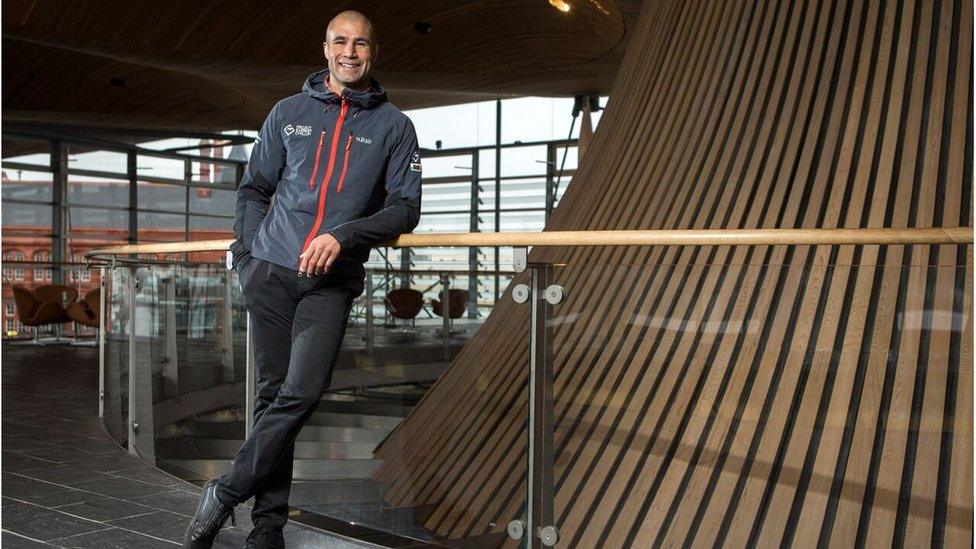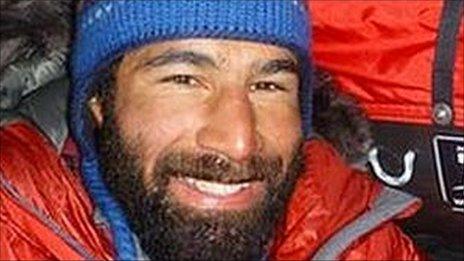Everest health test bid for explorer Richard Parks
- Published

Richard Parks on his previous expedition to Everest
A Welsh adventurer is to scale Mount Everest in a world-first bid to collect health data from the mountaintop to investigate the effects of altitude.
Former Wales rugby international Richard Parks will attempt to take blood and muscle samples after climbing without using supplemental oxygen.
He has climbed Everest previously and trekked solo to the South Pole.
The data will allow researchers to explore the mechanisms underpinning dementia and resilience.
The collaborative British research expedition called Project Everest Cynllun will focus on the link between low blood oxygen levels in the brain and cognition.
As part of the 18-month preparation for the expedition, which launched officially on St David's Day at the Senedd in Cardiff, Parks has undergone testing at the University of South Wales in a simulated high-altitude chamber.
'Hardest test'
Professor Damian Bailey, the project's scientific lead, said: "Hypoxia [oxygen deficiency] can almost give you a day in the life of a dementia patient because you are challenging oxygen glucose delivery to the brain and inducing aspects of cognitive decline in an otherwise healthy person in order to understand the underlying mechanisms.

The adventurer at the Senedd launch of Project Everest Cynllun on St David's Day
"With a combination of acclimatisation and exercise, you improve blood flow and oxygen delivery, and as a consequence you improve cognitive function.
"So we are using high altitude as an alternative model to challenge the brain and induce cognitive decline, but we are also using long-term acclimatisation to demonstrate how we can actually reverse some of those changes and in essence, improve the brain's 'health and fitness'."
Parks, originally from Pontypridd, south Wales, said: "This potentially will be the hardest psychological test I'll have ever faced.
"Having the mental strength to stick to the research protocols that we've designed and only use the supplemental oxygen for five minutes, when every fibre of my body will be screaming for it is hard to articulate.
"I'm imagining that it'll be like holding your breath under water and stopping yourself coming up for air."
He added: "I am prepared to be pushed further than I've been before, however the opportunity to collect this pioneering data justifies the effort.
"It's a privilege to be able to use my performance to add value to our world."
The climb is due to happen in May.
- Published25 May 2011
